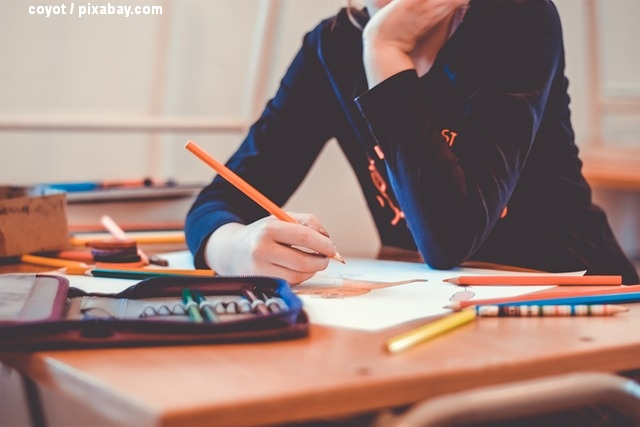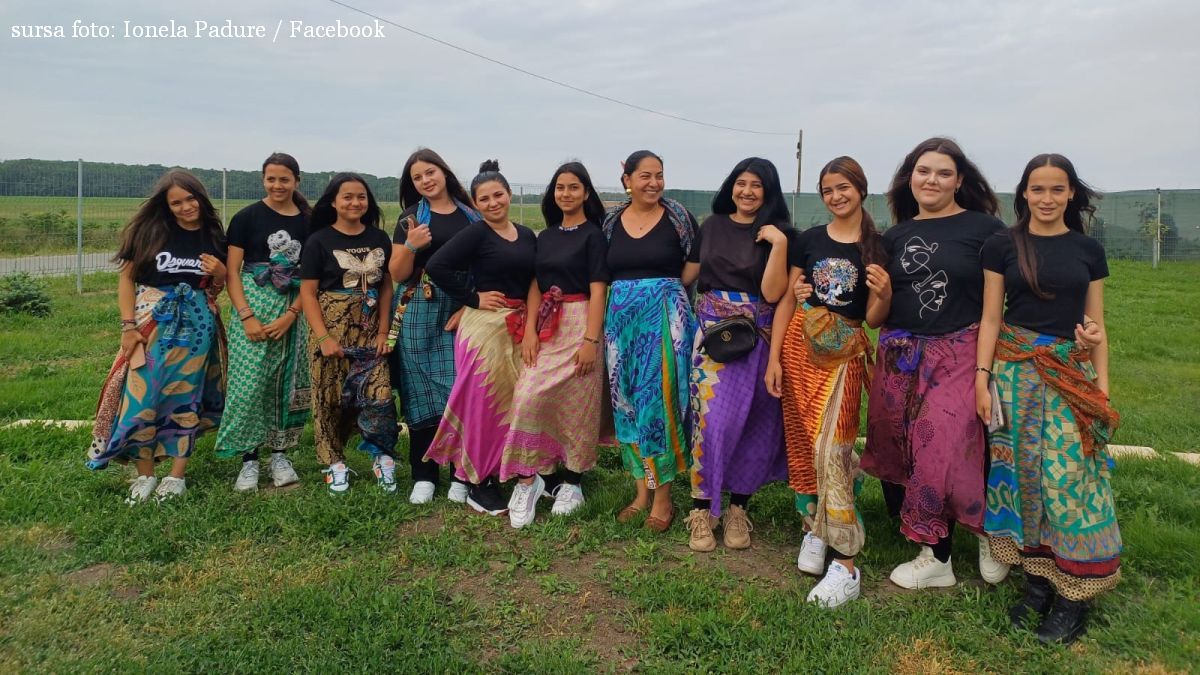New education projects in Romania
Criticized for a long time and with regard to many aspects, Romania's education system has been trying all sorts of versions of reform

România Internațional, 25.04.2023, 15:05
Criticized for a long time and with regard to many aspects, Romanias education system has been trying all sorts of versions of reform, perhaps too many and too often, as some critics have stressed. Currently, significant changes to the education law are subject to parliamentary negotiations and are waiting to be voted on. At the same time, some schools and teaching staff come up with their own alternative projects, approved by the relevant ministry, to improve the teaching-learning process.
One of these projects, currently piloted in three educational units in the country, is already being implemented by the Gheorghe Șincai National College in Bucharest, the college that has actually developed this project. It is about rethinking the division of the school year into modules, not semesters or terms. In fact, starting with the 2022-2023 school year, the ministry rethought the structure of the school year and divided it into certain modules, teaching periods, broken by short vacations. However, in this case, the courses are scheduled according to the classic structure, while in the already mentioned pilot project, the teaching hours for some subjects are combined in one module.
Math teacher Silvia Mușătoiu, from the Gheorghe Sincai National College told us more:
“The idea is not new, it does not belong to us entirely, but we have put it into practice, which is not easy, because we put a lot of work into this pilot project proposal. So, what is this project all about? The children used to have between 14 and 17 hours of classes per week, as established in the framework plans for high school, which is 9th to 12th grade. The number of subject matters is very large, so the child cannot focus very well on all the subjects they study when there are so many, and we thought that regrouping them in one school year, so that there are fewer subjects to study in a week might help them. So, what did we do? The specializing subjects, according to the specific educational profiles, where there are many hours allocated per week, remained topics to be studied annually. For example, for all grades, the Romanian language is studied annually. There where math and IT is the profile, mathematics is studied four or five hours a week annually. The subjects, however, which have two hours allocated per week, were gathered in a shorter period of time, with more hours taught per week. Lets take as an example art, which is studied in the 9th and 10th grades. In the classical system, the art class is held once every two weeks, all year round. We regrouped these 18 hours per year into a shorter period of time, that is, they are studied only during six weeks of the school year, three hours a week. This is called a module.”At the end of the module, certain subjects are not taught at all until the end of the year, because the subject has already been covered. The next module will contain other subjects which, in turn, will be studied intensively. Although the project is now underway and formal evaluation has yet to take place, there have been unofficial reactions from students and parents.
Here is Silvia Mușătoiu again:
“The feedback from students is very good, because with only eight or nine subjects per week, the children can allocate enough time for each subject that is studied in that period. In this context, teaching methods may be different. Our goal is for them to learn more intensively and a little more thoroughly than in the classic system. The system is not new, it has been used in other countries, like since the 1950s, in the USA and in the 80s and 90s in Europe, and it involves precisely restricting the number of subjects studied by students in a week. And these studies highlight the fact that the student studies one subject intensively for six weeks, but that does not mean that after six weeks they forgot everything they learnt. When a subject is studied intensively, the attention is a little more focused on that subject and the learning becomes more thorough. And I believe that when things are learnt thoroughly, its more unlikely to forget what you learned.” Through a partnership with the University of Bucharest, experts from the Faculty of Educational Sciences are going to research the application of this pilot project. The result of the evaluation will be presented to the ministry and then, obviously, a decision will be made whether this modular system will be expanded or not. Currently, two other schools are piloting it, apart from Şincai College: Mihai Eminescu College in Petroșani and “Constantin Angelescu” Theoretical High School in Ianca, Brăila county. We asked the expert in education, Marian Staș, what he thinks about this project. TRACK : “Honestly, I dont see disadvantages, but rather challenges to manage, and the advantages are certain. Its clear that when we focus more on something and we do it more thoroughly, it starts to become a habit and we understand it better. How much can a child learn when they have just one hour of something every two weeks? Correct answer: a little more than nothing. Another important aspect is the fact that each module is focused on a smaller number of subjects. And when I dont dissipate my attention on too many fronts, but I learn to think in a structured manner, I learn to focus on what is happening there. I have read that good practice study from the Mihai Eminescu College in Petroșani. I saw there that teachers who normally teach a subject only one hour a week now find themselves able to do three or four hours a week. In other words, they have at their disposal a much more consistent volume of time allocated to one subject or another. The question remains whether the current curricula fits such modular structure of the school year or whether the contents should also be slightly changed. Marian Staș : TRACK: “I think its the first historical example of form and substance and not form devoid of substance in 30 years of educational change. I mean this pilot project. It just so happens that my wife is a physics teacher. And as a family, we experimented this and she provided a very nice modular design model for middle school and high school physics. The result was absolutely correct, without necessarily cutting from the contents of the curriculum approved by order of the minister. But that is exactly what needs to be done, namely to consistently transform the contents as well, to amend the school curricula also. Which is obviously perfectly possible, because the whole point of piloting is not to make things worse for the system and more counterproductive for the children, but to make things better for the system and for the children.
The results of the assessment conducted by the University of Bucharest are expected in early May.






























